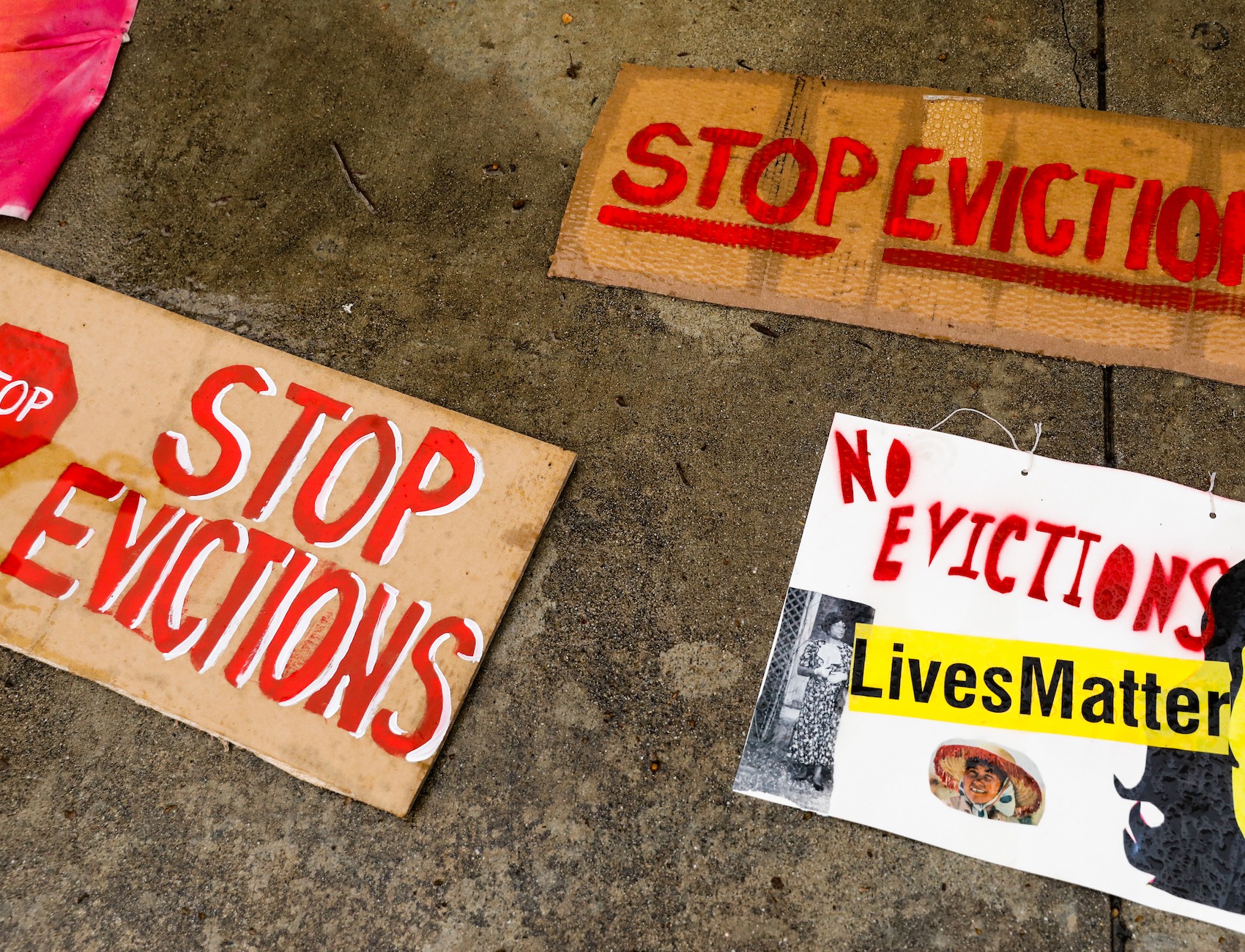Denver City Council Members Propose a Way to Keep Tenants in Their Homes
A new proposal would make Denver the latest major city to provide legal defense for residents facing evictions.

For months, two Denver City Council members—Amanda Sawyer and Candi CdeBaca—have been working on a plan to stem the coming glut of eviction filings. When Colorado’s COVID-19 eviction moratoriums finally end, thousands of households may face evictions across the state. In March, the Colorado Sun reported that more than 20,000 people were still waiting for rental assistance from the state Department of Local Affairs. According to the U.S. Census Bureau’s Household Pulse Survey, roughly 100,000 Coloradans were behind on rent in February.
Sawyer and CdeBaca are proposing a bill that would essentially make Denver’s 2018 pilot eviction defense program a permanent right. According to a draft of the bill that CdeBaca posted last Friday onTwitter, their proposal would provide a city-funded attorney to any tenant who earns 80 percent or less of the Denver’s area median income, putting the proposed threshold at around $55,000 for a single person and around $71,000 for a family of three.
“The purpose is not necessarily to stop people from getting evicted if it’s a rightful eviction, but to level the playing field,” Sawyer told The Appeal. “We want to make sure people getting evicted have access to information, or to help with issues like language barriers, things like that.” Sawyer said she and CdeBaca are speaking to various stakeholders around the city—including local activist organizations and landlords—and trying to figure out the best way to fund the program. Sawyer said she hopes the bill will be ready for a vote by the summer.
Indigent people facing any type of civil lawsuit must often defend themselves without any training or knowledge of the law. Studies have repeatedly shown that those with counsel in eviction proceedings obtain dramatically better results and are more likely to stay in their homes. Nationally, studies suggest landlords have counsel in 80 to 90 percent of eviction cases, while those facing eviction obtain counsel in only 10 percent of cases.
According to a 2017 study by the Colorado Coalition for the Homeless, every single landlord who filed an eviction case citywide from 2014 to 2016 did so through an attorney. Meanwhile, those being evicted obtained an attorney in just 1 to 3 percent of cases reviewed.
Denver currently contracts with an outside nonprofit organization to provide eviction defense services during the pandemic. But last Friday during a town hall meeting to discuss expanding eviction-counsel rights, CdeBaca and Sawyer said that, since there is no citywide rule stating that tenants must be notified of their rights during eviction proceedings, few Denverites are aware of the program or have utilized it.
“A lot of times tenants don’t know how to negotiate an agreement that would allow for something to happen—even if that is a move-out—without a judgment on their record,” CdeBaca said. She added that evictions also put stress on other city resources, including homeless services.
“That’s one of our major issues in the city right now when we’re trying to get people out of homelessness, and an eviction makes it exponentially harder for someone to ever climb out of the hole of homelessness,” CdeBaca said.
Those who are evicted, however, often face horrifying consequences. If Denver adopts the right-to-counsel proposal, it would follow several other major cities, including Newark, New Jersey and Boulder, Colorado, as well as Baltimore, Cleveland, New York, Philadelphia, San Francisco, and Seattle. Those measures have been significantly successful so far: In New York City, for example, 86 percent of households with counsel were allowed to stay in their homes in the year from July 1, 2019, to June 30, 2020.
